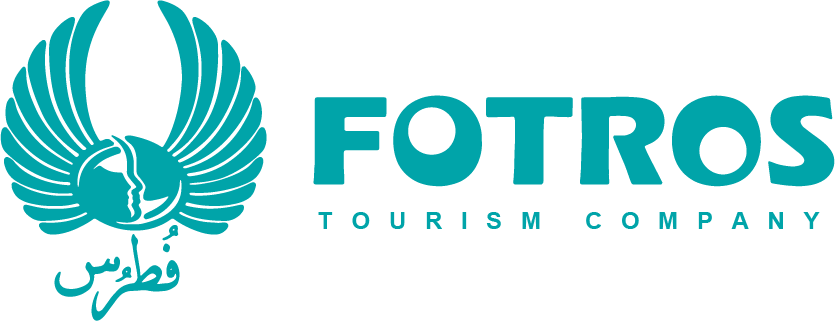
Medical Surgeries
Retinal surgery


Retinal surgery refers to a group of surgical procedures performed on the retina, which is the light-sensitive tissue located at the back of the eye. The retina is responsible for capturing and processing visual information, which is then transmitted to the brain through the optic nerve. Retinal surgery is typically performed to treat various retinal conditions and disorders that can affect a person's vision.
Some common reasons for retinal surgery include:
Retinal Detachment: This is a serious condition in which the retina becomes separated from the underlying tissue. Retinal detachment can lead to vision loss if not promptly treated. Surgery is often necessary to reattach the retina and prevent permanent vision impairment.
Macular Holes: A macular hole is a small break in the macula, which is the central part of the retina responsible for sharp, central vision. Surgery may be required to repair the hole and improve or restore central vision.


Epiretinal Membrane (Macular Pucker): An epiretinal membrane is a thin, transparent layer of scar tissue that can form on the surface of the retina, leading to distorted or blurred vision. Surgical removal of the membrane can improve vision in some cases.
Vitreous Hemorrhage: In some cases, bleeding can occur within the vitreous gel that fills the eye, which can obscure vision. Surgery may be needed to remove the blood and address the underlying cause.
Diabetic Retinopathy: In advanced cases of diabetic retinopathy, where abnormal blood vessels have formed and are causing retinal damage, laser surgery or injections of medications into the eye may be used to treat the condition and prevent further vision loss.
Retinal Vascular Disorders: Various vascular disorders can affect the retina, such as retinal vein occlusion or retinal artery occlusion. Surgical interventions or medical treatments may be considered to manage these conditions.
Retinal surgery can involve different techniques, including vitrectomy (removal of the vitreous gel inside the eye), laser surgery, cryotherapy (freezing), and the use of various instruments to repair or treat the retina. The choice of surgical procedure depends on the specific retinal condition and its severity.
It is essential for individuals experiencing retinal issues to consult with an ophthalmologist or retina specialist who can assess their condition and recommend the most appropriate treatment, which may include surgery if necessary.
Retinal surgery is a medical procedure performed to repair or treat conditions affecting the retina, such as retinal detachment, macular holes, and diabetic retinopathy. The before, aftercare and recovery duration can vary depending on the specific type of retinal surgery and the individual patient's condition. It's essential to follow your ophthalmologist's recommendations closely, as they can provide personalized guidance based on your case.


Before Surgery:
Consultation: You will have a consultation with your ophthalmologist to discuss the procedure, its risks, benefits, and expectations. They will review your medical history and conduct necessary eye examinations.
Preoperative Preparation: You may need to avoid eating or drinking for a specific period before the surgery, depending on the type of anesthesia used.
Medications: Your doctor may prescribe preoperative medications to prepare your eye for surgery or to control inflammation.
Arrangements: Plan for transportation to and from the surgical center, as you will likely not be able to drive after the surgery.
Recovery Duration:
The recovery duration can vary widely, depending on the type of retinal surgery, the individual patient, and the success of the procedure. In many cases, it can take several weeks to months for a full recovery. Here's a rough guideline:
Vitrectomy: Recovery can take several weeks to months, and your vision may continue to improve over time.
Retinal Detachment Repair: After surgery, it may take a few weeks for the gas or silicone oil used in some procedures to be absorbed by the eye. Full recovery can take several months.
Macular Hole Surgery: Recovery can take a few weeks to a few months, with improved vision over time.
Intravitreal Injections: These are less invasive and have a shorter recovery time, often a few days to a week.




Why Iran:
Iran has gained recognition for its advanced healthcare infrastructure and medical expertise, making it a suitable destination for various medical treatments, including retinal surgery. There are several reasons why Iran may be considered suitable for retinal surgery:
Highly Skilled Medical Professionals: Iran has a well-established healthcare system with a significant number of highly trained ophthalmologists and retinal surgeons. Many of these professionals have received training and education from reputable institutions around the world, making them well-qualified to perform complex retinal surgeries.
Modern Medical Facilities: Iran has invested in modern medical facilities and state-of-the-art technology for diagnosing and treating eye conditions, including those related to the retina. Well-equipped hospitals and clinics are available throughout the country, providing a conducive environment for retinal surgery.
Affordable Healthcare: Iran offers high-quality medical services at a fraction of the cost in Western countries. The relatively low cost of healthcare in Iran can make it an attractive option for individuals seeking retinal surgery, as it is often more affordable than in many other countries.
Medical Tourism Infrastructure: Iran has actively promoted medical tourism, and as a result, numerous agencies and hospitals specialize in serving international patients. They provide services such as airport transfers, accommodation, translation services, and assistance with medical paperwork.
Diverse Patient Community: Iran serves a diverse patient community, attracting individuals from various countries for medical treatments. This diversity can lead to a more multicultural healthcare experience, with medical professionals accustomed to working with patients from different backgrounds.
Cultural and Historical Attractions: Iran offers a rich cultural and historical experience for medical tourists. Patients and their companions can explore the country's historical sites, museums, and natural beauty while receiving medical care.
Our services include:
![]() our online services include: quotes and consultation
our online services include: quotes and consultation
![]() Planning the highest word-level medical trips and quality hospitals and medical centers according to the patient's request and budget.
Planning the highest word-level medical trips and quality hospitals and medical centers according to the patient's request and budget.
![]() Appointing treatments by the most skilled and experienced doctors.
Appointing treatments by the most skilled and experienced doctors.
![]() Airport pick-up/drop off, check-ups, accompanying translator, book hotel (for patients and their families)
Airport pick-up/drop off, check-ups, accompanying translator, book hotel (for patients and their families)
![]() Pre-hospitalization / post-hospitalization care services
Pre-hospitalization / post-hospitalization care services




All-Inclusive Medical Travel Packages
based on your budget, our team will assist you in choosing the best hotels, doctors, and medical centers. Our packages include:
 Airport Pickup Services
Airport Pickup Services Airport Dropoff services
Airport Dropoff services Hotel
Hotel Ticket
Ticket visa
visa translator
translator Transfer
Transfer SIM Card
SIM Card Sightseeing
Sightseeing
 why Iran
why Iran
Patients may choose to have abdominoplasty (commonly known as a tummy tuck) in Iran for a variety of reasons
Cost, Quality of Care, Privacy and Discretion, Combined Tourism, no Waiting Times
![]()
Fotros is an Iranian health tourism company with a professional team consisting of a support team and word-level doctors in medical and cosmetic surgeries like Neurosurgery, Rhinoplasty, Breast cosmetic surgeries, Liposuction, tummy tuck, etc.










 why Iran
why Iran